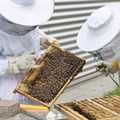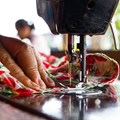Speaking at a briefing on Wednesday evening on the introduction of level four lockdown regulations, Minister of Cooperative Governance and Traditional Affairs Nkosazana Dlamini-Zuma said that the sale of cigarettes and alcohol will remain prohibited.
Initially government had proposed that the sale of cigarettes, tobacco and e-cigarettes would be allowed at level four, however Dlamini-Zuma said that government received over 2,000 submissions from the public opposing the sale of tobacco products.
“We debated the matter and looked at it and decided we must continue as we are when it comes to cigarettes and tobacco products and we decided not to open the sale,” she explained.
She said the reasons are health-related and that the manner in which tobacco is shared amongst people encourages the spread of the virus.
While wine exports have received the go-ahead, no alcoholic beverages will be allowed to be sold under level four regulations. Dlamini-Zuma said this stance is assisting in fighting Covid-19.
“The non-sale of alcohol has freed the hospitals; our emergency hospitals and units are normal now. Our ICUs are not filled with people who have been stabbed or shot or raped or so on.”
“Besides that, alcohol attracts crowds. Very few people enjoy drinking alone. Besides that, it means that the police can do what they need to do and all the enforcement officers. The hospital can look after the sick and not the emergencies that come from the effects of alcohol,” she said.
Despite appeals from the public to allow hairdressers and beauty therapists to operate, these services will not be allowed under level four regulations. "At this point, it is not possible because [with] those kinds of services the person is close, there is no social distancing. We heard you but we can't allow it at this point. It is too risky," she said.
Expanded list of products allowed for sale
Level four regulations will permit the sale of hot cooked food for home delivery only, said Minister of Trade and Industry Ebrahim Patel.
Retailers selling hardware, components and supplies will be open to everyone from 1 May.
The sale of winter clothing, children's clothing, bedding and heaters will also be permitted, as well as textiles required to produce face masks and other personal protective equipment. Local manufacturers producing these items will be allowed to operate at 50%, with the workforce phased in gradually.
A "wider list" of personal toiletries will be allowed for sale, including products for manicures and pedicures as well as additional haircare items.
The sale of stationery and educational books will be allowed and retailers selling personal ICT equipment including computers, cellphones and other home office equipment will also be permitted to operate.
For now, online retailers may only sell the same goods as other retailers, but Patel said e-commerce will be expanded incrementally, with a larger number of items being allowed for delivery.
Patel ended his address urging consumers to buy locally-made products where possible.
Level four regulations will kick in on Friday, 1 May.




































